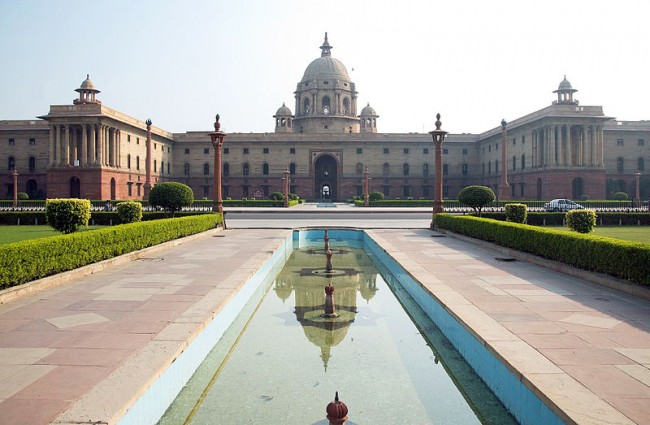
By Shahzadi Tooba Hussain Syed
“Geo-economics is the use of economic instrument for geo-political purposes”. These kinds of activities are specifically carried out by foreign countries in order to sabotage the economic activities of a country, and make the state dysfunctional. This economic terrorism is far worse than direct invasion of a country. Emerging economies are the most affected.
Coming towards the practicality of the term “economic terrorism” after creating Uri attack drama, India is going ahead with all the other plannings. The main focus of India is to sabotage the CPEC Project, as exposed through Kulbhushan Yadav, a spy working for Indian research and Analysis Wing (RAW) who was caught by Pak army in March 2016. Gen Bajwa explained that the primary task given to Yadav (as he accepted) was to revive the dying Balochistan insurgency and sabotage China-Pakistan Economic Corridor. India has made no secret of its strong opposition to the CPEC project, and it is believed to be making covert efforts to sabotage it. Indian Foreign Minister Sushma Swaraj has said last year that Indian Prime Minister Narendra Modi “very strongly” raised the issue regarding China-Pakistan Economic Corridor (CPEC) during his visit to Beijing, and called the project “unacceptable”.
Another episode of the series is the abrogation of Indus Water Treaty. The treaty consisted of 11 articles, detailing different provisions and rules for both parties. The 8 appendixes present in the treaty listed the detailed conditions and technical information that was to be followed by both parties.
Under the conditions set in the Indus Water treaty, out of the six rivers that flow into Pakistan, the three western rivers (as highlighted in the picture above) were allocated to Pakistan. According to the Indus Water Treaty, Pakistan has unrestricted access to the three rivers, i.e. Jhelum, Chenab and the Indus. For its part, India was allocated unrestricted to access to the three eastern rivers, i.e. Ravi, Sutlej and Beas.
Despite having control over the upstream of the three western rivers, India isn’t allowed to store any water or modify the natural drainage of the river flow. However, the treaty does allow India to use the water for domestic, agricultural, power generation and any other non-consumptive purposes.
The same applies for Pakistan with respect to the three Indian rivers up until the rivers reach Pakistan. Following that, Pakistan had nearly unrestricted access to the rivers. Pakistan isn’t allowed to alter the three Indian rivers in any way which could cause damage to India.
As mentioned before, Pakistan has unrestricted access to its own rivers and is allowed to manage the water as it sees fit. However, Pakistan was also asked to develop the capacity to make the best possible use of its water resources.
To aggravate the already tense situation, Prime Minister Narendra Modi told officials on Monday that India should use more of the rivers’ resources. Further he said that India will accelerate its building of new hydro-power plants along three rivers that flow into Pakistan and “we want to see that all these (hydropower) projects are put on a really fast-track basis”.
India has long accused Pakistan of backing militant groups operating in the Himalayan state of Jammu and Kashmir, through which several of the countries’ shared rivers flow. Pakistan denies the allegations and says India has not provided adequate proof to support its claims.
The Indus Waters Treaty was signed in 1960 in a bid to resolve disputes, but India’s ambitious irrigation plans and construction of thousands of upstream dams has continued to annoy Pakistan, which depends on snow-fed Himalayan rivers for everything from drinking water to agriculture.
As per the agreement, however, India is allowed to build dams only to consume the water, which they are currently not doing. As a review is in the process whether to restart construction of the Tulbul navigation project, which was suspended several years ago. The project proposes diverting water from one of the shared rivers to a city in India-held Kashmir that could impact flows downstream.
Which means that only option left for India is to build dams and restrain or slow-down the flow of waters. In such a scenario, it will take India at least 12-15 years to build the required number of dams to put Pakistan in trouble.
Adviser to the Prime Minister on Foreign Affairs Sartaj Aziz on Tuesday told the Senate that revocation of the Indus Waters Treaty by India “can be taken as an act of war” against Pakistan.
“If India tries to interrupt water flow into Pakistan, it will not only violate the Indus Water Treaty, but also set a regional state practice under which international law can be serve as a precedent. It will provide China, for example, a justification to consider of suspension of waters of the Brahmaputra river. He further told that “Pakistan will ‘react befittingly’ if India attempts to violate the Indus Waters Treaty.
For immediate blockade, it will have to violate the treaty. In this case, the matter can also escalate and may lead to a full-blown war between both the countries.
The most important thing is that if Pakistan has to gain international support and deal with the issue permanently, we need to conserve our water resources as much as we can. Pakistan requires more dams, to store water, and barrages, to control water flow in case India releases water from its dams or block the water.




